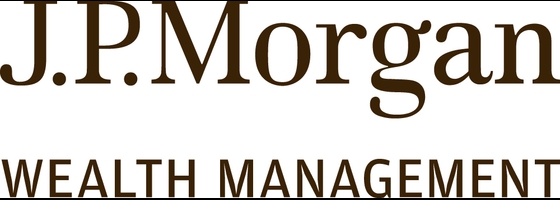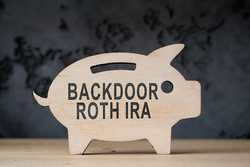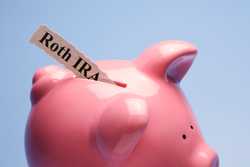401(k) Rollover to a Roth IRA: What You Need to Know

Our evaluations and opinions are not influenced by our advertising relationships, but we may earn a commission from our partners’ links. This content is created by TIME Stamped, under TIME’s direction and produced in accordance with TIME’s editorial guidelines and overseen by TIME’s editorial staff. Learn more about it.
The decision about whether to convert a traditional 401(k) to a Roth IRA depends a lot on your financial circumstances, including your tax situation.
“Converting money from a traditional 401(k) to a Roth IRA can be a great strategy to help you build a bucket of money for retirement that will not be subject to taxes,” says certified financial planner and chartered financial consultant Brent Weiss, co-founder and head of financial wellness at Facet. “However, Roth conversions aren’t right for everybody. It’s important to create a personalized plan for your money, to understand your entire financial picture, and to have a good understanding of your taxes today and tomorrow.”
INVESTMENT AND INSURANCE PRODUCTS ARE: NOT A DEPOSIT • NOT FDIC INSURED • NO BANK GUARANTEE • MAY LOSE VALUE
J.P. Morgan Wealth Management is a business of JPMorgan Chase & Co., which offers investment products and services through J.P. Morgan Securities LLC (“J.P. Morgan”), a registered broker dealer and investment adviser, member FINRA and SIPC. TIME Stamped is a publisher of J.P. Morgan, (“Publisher”). The Publisher will receive compensation from J.P. Morgan if you provide contact details to speak with a J.P. Morgan representative. Compensation paid to the Publisher will be up to $500 per completed contact form. Compensation provides an incentive for the Publisher to endorse J.P. Morgan and therefore information, opinions, or referrals are subject to bias. J.P. Morgan and the Publisher are not under common ownership or otherwise related entities, and each are responsible for their own obligations. Investing involves market risk, including possible loss of principal, and there is no guarantee that investment objectives will be achieved.
Here are nine steps for converting a traditional 401(k) to a Roth IRA.
The following retirement accounts can be converted to a Roth IRA:
Brett Wood, a financial adviser at TBS Retirement Planning in Hurst, Texas, explains that if you have a designated Roth version of a 401(k), 403(b), or 457(b), your contributions (since they are made with after-tax income) can be shifted to a Roth IRA without going through a formal conversion process. This is not true for a traditional 401(k), 402(b) or 457(b) because your contributions to those accounts are made with pre-tax income.
“However, any matching…contributions from your employer might be taxed, so you will want to speak with your human resources department to avoid any surprises come tax time,” says Wood.
The decision to convert a traditional 401(k) to a Roth IRA depends on your financial situation and goals. However, it might be a smart move if you:
Some times are better than others when it comes to converting a traditional 401(k) to a Roth IRA.
Wood says that any year when your earned income is lower than usual—or you have retirement accounts that have decreased in value—is a good time to do a conversion because it could let you convert money without going up to a higher tax bracket.
“Converting when your account balances are down can be a good idea,” says Weiss. “You can convert to a Roth IRA, reinvest the money in the same or similar investment, and take advantage of future growth in your Roth, which can be tax free if used properly.”
You also might find it’s a good time to do a conversion from a 401(k) to a Roth IRA if you don’t need the money for at least five years. A Roth IRA offers tax advantages, as withdrawals can be made tax free. Still, you might incur income taxes and penalties if you withdraw earnings from the money in a Roth IRA within five years of opening it.
Furthermore, a conversion might be timely if you don’t think you’ll need the money before age 59½. If you’re under that age, the IRS restricts withdrawals of earnings from a Roth IRA. There are exceptions to this rule, but in many cases you face tax payments and an early withdrawal penalty of 10% if you pull out any of the IRA’s earnings before turning 59½.
Before pulling the plug on a traditional 401(k) and moving that money to a Roth IRA, you should go over several considerations. The laws are complicated and it can help to consult a financial adviser.
The tax impact is perhaps the most important consideration when converting a traditional 401(k) to Roth IRA. Contributions made to a traditional 401(k) and earnings on those contributions are tax-deferred. You pay taxes on the contributions and earnings when you take out money.
When you convert a traditional 401(k) to a Roth IRA, you’ll owe taxes on the converted amount. However, taxes won’t be due on qualified withdrawals during retirement.
Before converting a traditional 401(k) to a Roth IRA, you may want to visit with an investment adviser or tax professional to go over the financial consequences. If you don’t have cash to cover the tax bill for the conversion, it might be better to move money from your traditional 401(k) to a traditional IRA. Why? Because money in the traditional IRA would keep growing on a tax-deferred basis and you won’t be taxed on it.
When you convert a 401(k) to a Roth IRA, you might lose some investment options. For instance, a 401(k) mutual fund that has performed well might not be available from the Roth IRA provider that you choose. On the other hand, as already noted, you may have wider choice of investment choices.
Depending on which company you pick for your Roth IRA, you may end up paying higher investment fees as an individual than with a 401(k) sponsored by an employer.
While you can take out a loan from a 401(k), you can’t borrow money from a Roth IRA. If you need quick access to cash, a Roth IRA wouldn’t be a borrowing option.
If you think you’ll need at least some of the money within the next five years, a conversion from a 401(k) to a Roth IRA might not be the right move. That’s because you often face a 10% tax penalty if you don’t wait for at least five years after opening the account to touch the money in a Roth IRA. The same tax penalty typically applies if you take money out of a Roth IRA before age 59½.
Estimating your tax liability on a conversion from a traditional 401(k) to a Roth IRA depends on your tax bracket and tax rate, says certified plan fiduciary adviser Bob Chitrathorn, chief financial officer and vice president of wealth planning at Simplified Wealth in Corona, Calif.
“A formula to calculate the tax liability from converting 401(k) or IRA assets to a Roth IRA is basically going to be as complex as an individual’s or couple’s income streams and various tax deductions or credits available to them,” notes certified financial planner Scott Sturgeon, founder and senior wealth adviser at Oread Wealth Partners in Leawood, Kan.
“For most people,” Sturgeon adds, “doing a 401(k)-to-Roth-IRA conversion is going to make the most sense when they're retired and they enter a phase where their income may be lower than when they were working, thereby putting them in a lower tax bracket. That means whatever dollars are being converted are ideally taxed at lower rates.”
Weiss offers the following example of the tax liability for a traditional 401(k)-to-Roth-IRA conversion.
Let’s say you convert $10,000 from a traditional 401(k) to a Roth IRA. You’re in the 24% federal tax bracket and your state’s 6% tax bracket. The $10,000 would be subject to both federal and state taxes.
“In this case you would owe $3,000 in taxes when you file your tax return,” explains Weiss. “However, you don’t have to pay the taxes right away. You will end up owing those taxes when you file your tax returns for that year.”
You can take several approaches to reduce the tax hit from a traditional-401(k)-to-Roth-IRA conversion.
Instead of making one big conversion, consider smaller, once-a-year conversions. This is known as a Roth conversion ladder.
“Smaller amounts converted over time are generally the better move,” says Weiss.” You’ll avoid tax bracket creep, you’ll pay less in taxes each year, and you’ll gradually get more money into your Roth.”
If your 401(k) contains both pretax and after-tax dollars, consider rolling over only the after-tax dollars into a Roth IRA (and only the pretax dollars into a traditional IRA or another eligible retirement plan). This enables you to avoid paying taxes on the 401(k) to Roth IRA conversion.
Visit with a tax professional to look into any tax deductions and tax credits that might ease the tax burden of a traditional-401(k)-to-Roth-IRA conversion.
Converting from a 401(k) to a Roth IRA isn’t the only option for shaking up your retirement savings.
If your former employer allows it, you might choose to leave your money in the employer’s 401(k) plan. Doing so enables you to put off making a decision about what to do with those funds. What’s more, these fund may be more protected from creditors in lawsuits than money in an IRA.
Have you moved on to a different employer? If so, you may be able to switch the money from your old employer’s 401(k) to a 401(k) at your new employer. If you have reached RMD age, this will protect you from needing to take RMDs because you don’t have to take an RMD from your current employer’s 401(k)—only from 401(k)s from previous employers.
Rolling over money from a traditional 401(k) to a traditional IRA may give you flexibility in terms of your investment options. Plus, the money in a traditional IRA still grows on a tax-deferred basis, just as in a traditional 401(k) or Roth IRA.
Taking a cash distribution from a traditional 401(k) might seem like a great option, but it might cause you to lose money due to taxes and penalties. And once it’s out, you lose tax-free growth on that cash to build your future retirement savings.
The table below refers to rolling over a traditional 401(k) to a Roth IRA as the process for converting a Roth-designated 401(k) to a Roth IRA is mostly straightforward.
| Rollover options | PROS | CONS |
|---|---|---|
Leave funds in former plan | Decision delayed on what to do with money Earnings grow on a tax-deferred basis until they’re withdrawn Possibility of better investment options than a new account would offer 401(k) assets normally shielded from creditors | Leaving money in a 401(k) may make it harder to monitor retirement savings No ability to keep contributing to 401(k) at former employer Investment options may be less attractive than those offered by a different retirement account Fees may be higher in a 401(k) than with investment alternatives |
Move to a new traditional 401(k) at your new employer | Earnings grow on a tax-deferred basis until they’re withdrawn Potential ability to borrow money from a new 401(k) Possibility of better investment options than current 401(k) offers Fees may be lower in 401(k) than with investment alternatives No RMD requirement at a current employer | Investment options may be less attractive than those offered by a different retirement account Fees may be higher in a new 401(k) than with investment alternatives |
Move to a traditional IRA | Money grows on tax-deferred basis until withdrawals made Possibility of better investment options than current 401(k) offers | Investment options may be less attractive than those offered by a different retirement account Fees may be higher than with investment alternatives Unlike a 401(k), you can’t borrow money from a traditional IRA IRA assets are typically shielded from creditors only in case of bankruptcy |
Move to a Roth IRA | Possibility of better investment options than a current 401(k) offers Contributions and earnings grow on a tax-free basis | Investment options may be less attractive than those offered by a different retirement account Taxes assessed on 401(k) to Roth IRA conversion Unlike a 401(k), you can’t borrow money from a Roth IRA IRA assets are typically shielded from creditors only in case of bankruptcy |
Cash distribution | No RMDs Withdrawals at retirement will be tax and penalty free as long as you’ve held the account for five years | Potential taxes and penalties No tax-deferred growth of money May mean less money for retirement |
A Roth conversion ladder refers to moving only part of your retirement savings each year from an account such as a traditional 401(k) to a Roth IRA. This strategy can help lower your tax burden and avoid tax penalties.
Yes, you can convert from a 401(k) to a Roth IRA even if you earn too much to contribute to a Roth IRA. The IRS places no income restrictions on Roth conversions.
If you turn 73 in 2024, your first RMD does not need to be made until April 1, 2025. The RMD age rose from 72 to 73 in 2023 and goes to 75 in 2033.
TIME Stamped is paid a flat fee for each successful referral to Herring RIA Sub, LLC ("Playbook") made through our links. TIME Stamped is not a Playbook client. There is no guarantee that clients will have similar experiences or success.
The information presented here is created by TIME Stamped and overseen by TIME editorial staff. To learn more, see our About Us page.




